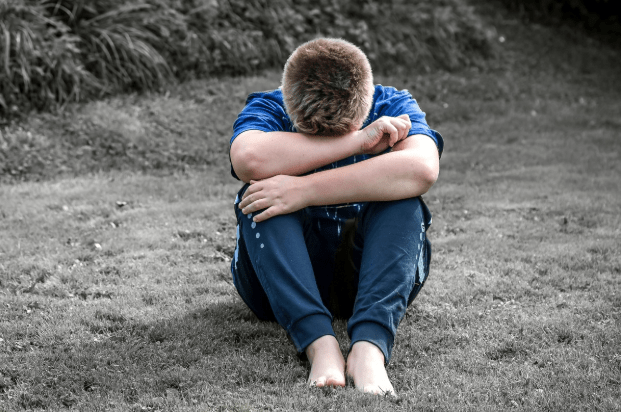Having an anxious child can induce some of the most anxious-ridden moments within a parent. This can often lead to a vicious cycle situation where your worried little darling will see their level of anxiety heightened because they feed off of your fretful vibes. It can be difficult to know what to do for the best. Anxiety isn’t solely the domain of adults with overbearing bosses, financial worries and relationship problems. In the twenty first century, more children, from elementary kids to adolescents are finding themselves afflicted with the condition. We shouldn’t simply tell our children that they have nothing to worry about and they don’t know how easy they have it. Instead, we should be focusing more on their mental well being, recognizing that their anxiety may be deeper and more chronic, and try to help them manage the condition more effectively or even banish it forever.
Be Firm But Fair
It’s all too easy to avoid certain anxiety triggers for your child, but this can lead to them becoming isolated and having a very narrow view of the world. Instead, you need to switch up your outlook on these anxiety inducing situations to present a more laid back and positive vibe. Children often respond to their parents moods so being agitated or worried yourself will not foster a positive experience.
Your offspring may hate social gatherings, but this doesn’t mean that they should always refuse to attend their pals birthday parties. Anxiety is often perpetuated by the negative thoughts of what might happen. Perhaps they are worried that they will be left out during a party game, maybe they don’t like the thought of meeting new people, or maybe they are fussy eaters and panic at the thought of not having their trusty cheese sandwiches to snack on. Whatever it is, you need to help them break this cycle of thinking. Short mindfulness sessions for children can be perfect to help refocus your little one’s mind to the present rather than worrying about the future. Living in the moment is easier to do when you are a child so consider enrolling on a mindfulness course as a family to show your support.
It’s vital that you try to break the cycle of anxiety. By all means, recognize an anxious situation, but never turn away from it, and confront it instead. Before long, your child will feel more empowered to tackle situations head-on, rather than retreat.
Comfort
Sometimes, your child will need nothing more than their parent whispering positive reinforcing messages into their ear to help relieve anxiety. Some children rely more on physical items to give them comfort. Just like when your little cherub was a baby, he or she might have had a pacifier, a soft toy that went everywhere with them or a well used piece of muslin that brought them immediate comfort. This can be translated into adolescence. While a pacifier is not a practical solution, some sort of metaphorical security item might be. Why not see what experts say about this weighted blanket idea for those children with chronic anxiety. The idea of utilizing the pressure points that naturally occur on the body to provide comfort and balance is nothing new. However, weighted blankets made specifically for kids can be the ideal solution if your child has trouble sleeping or needs to feel more relaxed during car journeys. Acupuncture, massage and yoga have also been deemed appropriate in the treatment of childhood anxiety and should be explored.
Talk
Although it can be trying at times when you feel helpless, and you see your child suffering with their mental health, it’s important that you keep all dialogue channels open. Sometimes, your child will need a simple hug or words of encouragement. Ensure that you foster a family home where your brood can feel comfortable to talk about anything. Ask them about their school day, encourage them to invite friends over and try to foster a relaxing environment. Ensure that your child doesn’t feel badgered into talking but let them know that you will always be there when they need you.
Anxiety isn’t a millennial affliction, but it is a condition that is losing the stigma attached to it, and rightly so. Barriers are being broken down so that mental health is seen as paramount to our well being as physical health. By following this advice, you and your child will be able to tackle problems with more confidence, and you will be able to manage anxiety together.
I’m a 20-something stay-at-home mother and wife. I have an amazing husband, a beautiful daughter, two loving dogs, and a lazy cat. I wouldn’t change my life for anything! I love to read, listen to music, cook and blog!



Speak Your Mind